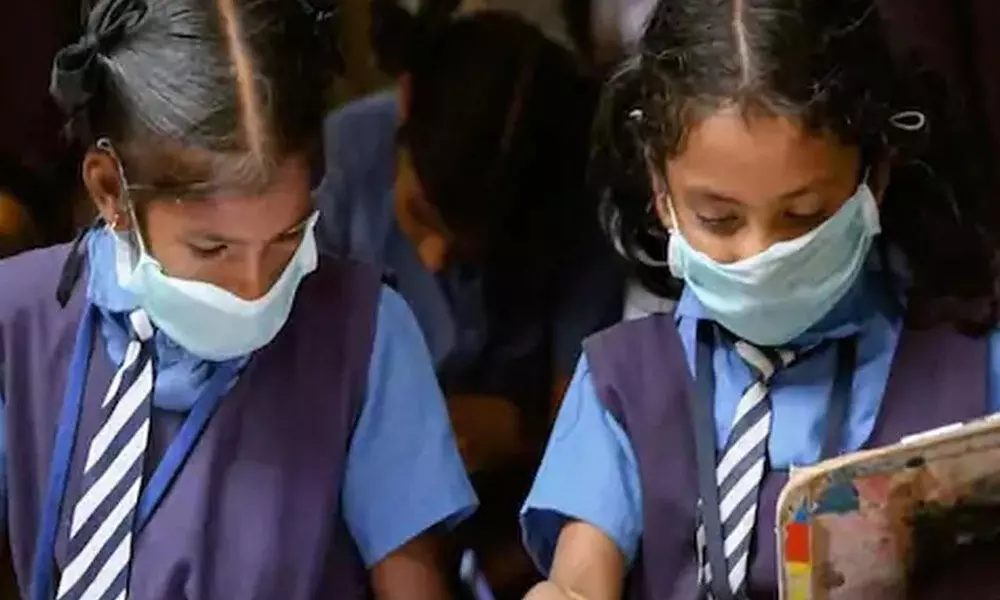Telangana: Virtual schooling at primary school level distorts a child's understanding
 Virtual schooling at primary school level distorts a child’s understanding
Virtual schooling at primary school level distorts a child’s understandingUnion HRD Ministry’s Alternate Academic Calendar accused of being indifferent to student welfare
Hyderabad: The Union Human Resources Ministry's ambitious eight-week alternate calendar for primary stage-II for Classes I has raised many eyebrows. Reason being, the alternate calendar comes prescribing online schooling for children as old as five years without prescribing any health advisory in the context of children exposed to mobiles, TV, computers etc, as part of implementing the learning process and precautions need to be taken by the parents, teachers and the schools rolling out the online classes.
The Alternate Academic Calendar for the Primary Stage (AACPS) - Part II did not bother to look into how the content it is providing for online schooling affect the students' perceptions about various things.
For example, the guidelines to teachers stress on the pre-learning abilities of their pupil to connect to the theme that is going to be introduced to achieve a specific learning outcome.
But, the Math-Magic for Class I chapter I- intends to introduce 'Shapes and Space', under which, the children have to learn the topic 'Inside-Outside'. This takes most of the children across the country to totally transnational settings in the story of 'The Arab and his Camel', disconnected, to their immediate pre-learning comprehension. Similarly, the Class-I, English textbooks of Marigold, introduces the first lesson called 'A Happy Child' with a learning outcome of colours, animals and our environment, followed by the second lesson, 'Three Little Pigs.'
In all the above lessons, Class-I students have to comprehend the permutation and combinations learning about feelings like happy and crying. Physical objects like house, straw, sticks and bricks. Colours like red, green, yellow, purple. Natural objects and living forms like tree, sun, pigs, bull etc. Actions like sit, done, play etc,. Identities like "child, Sonu, Monu, Gonu. Concepts of time like one day, day long, a whole day. Besides moral concepts like bad. On top of it all, the English poems come with a piece of background music using instruments like piano, drums, guitar etc.
Responding to how all this impacts a child when taught through online classes, Dr Ganesh Chauhan, Assistant Professor at the Centre for Brain Research, Indian Institute of Science (IISc), Bengaluru said that when a child sees a tree, colour, animals etc in the real world, his perceptual response towards all such things and situations is spontaneous. Because he has grown up seeing, feeling, knowing and all this is memory is naturally stored and helps in understanding the reality of each and everything in a real-world scenario. But, when it comes to virtual learning their perceptual responses to what is shown on the screes is out of processed memory. "A child may not like or may get irritated even to the sounds of what he sees on screens. Or, he may like more. In both cases, it distorts their perception of the realities of various things, existing in the real world." Apart from the long screen times posting health problems, online classes are not advisable for children studying in the primary stages, he added.














